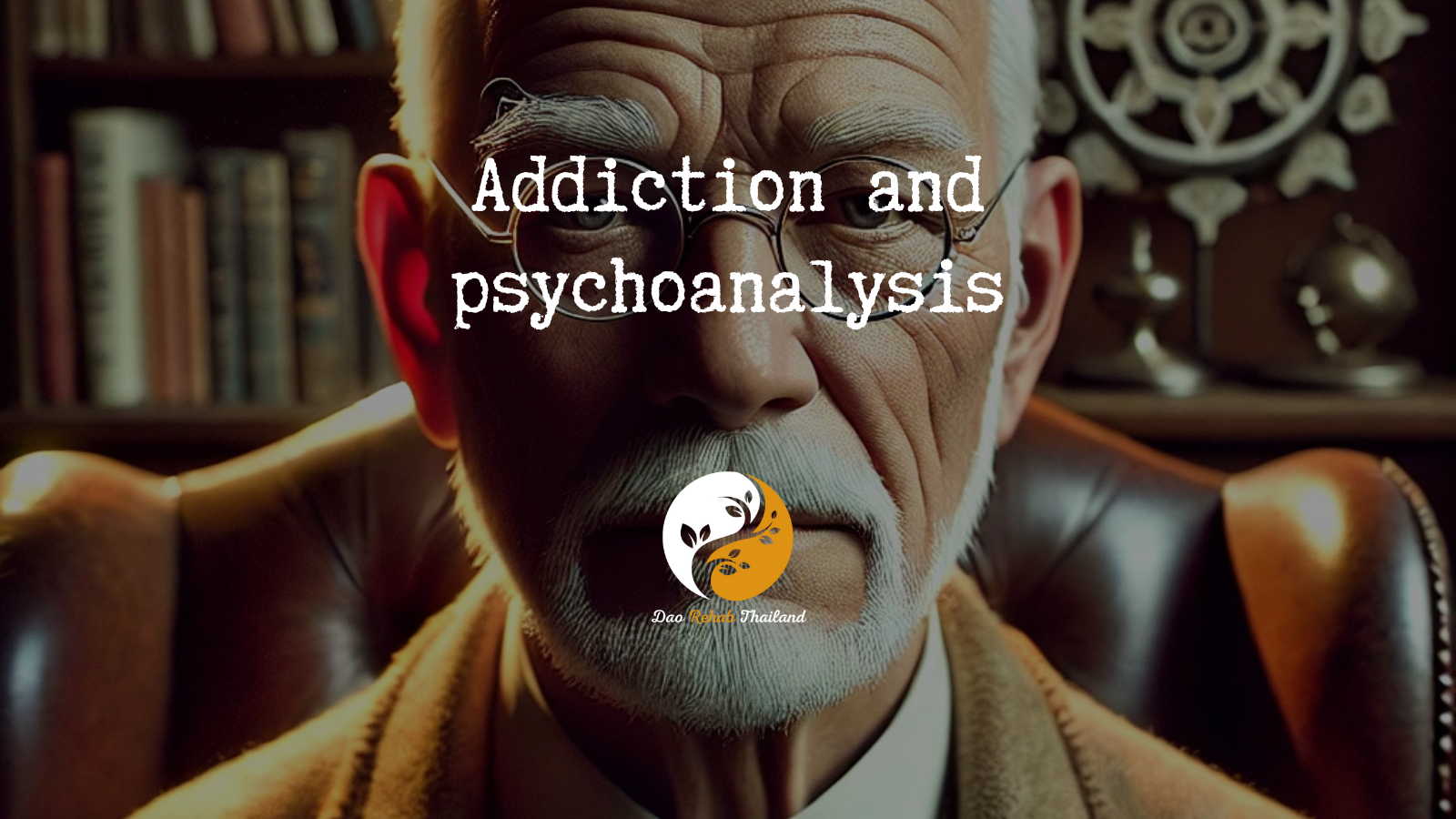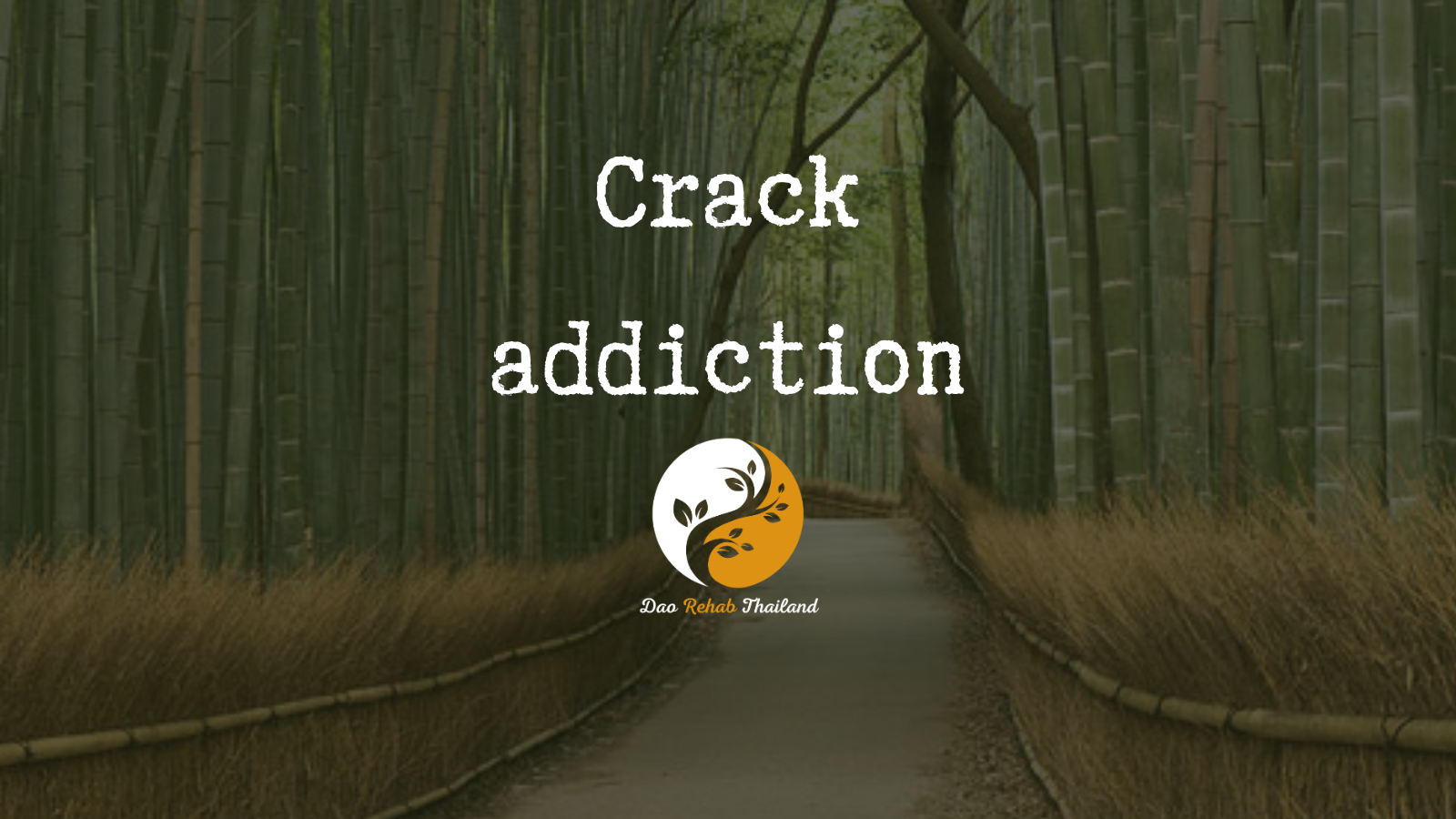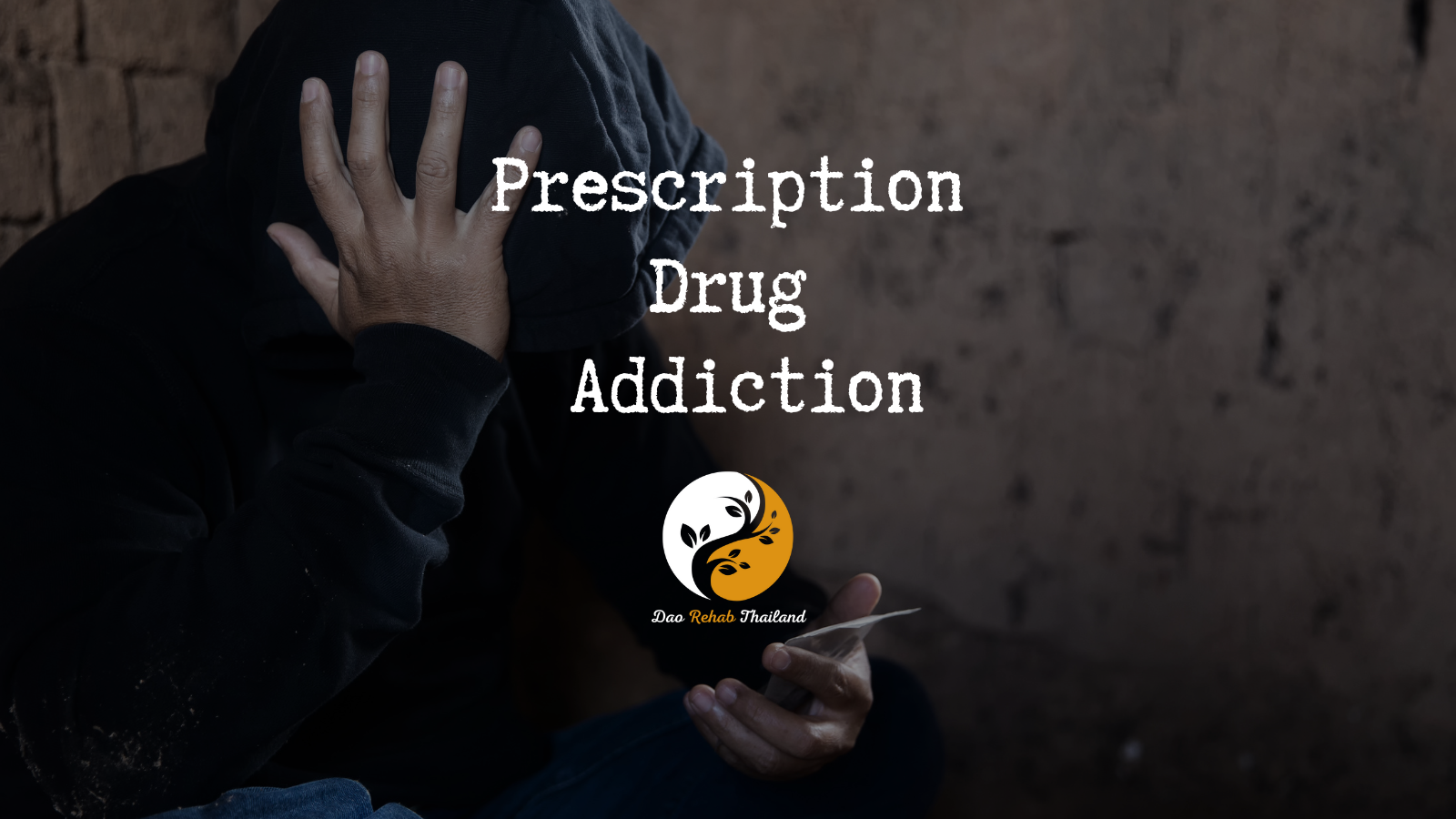
Addiction and psychoanalysis
Addiction and psychoanalysis
“Turning the impossible into possible”

"Detox from Drugs at a Luxury Holistic Center in Thailand and Israel"

Introduction: Addiction and Psychoanalysis
Dr. Lance Dodes’ 2003 article, “Addiction and Psychoanalysis,” focuses on two primary aspects: the possibilities inherent in treating addicts through psychoanalysis and the limitations of the psychoanalytic approach as it is currently applied. In his article, Dodes presents a balanced and critical perspective, challenging traditional conceptions regarding the suitability of addicts for psychoanalysis, while offering updated insights into how this approach can be a relevant and effective means of treating individuals dealing with addiction.
"Holistic Center for Trauma, Addiction, and Mental Imbalance Treatment in Thailand"
“Come to the beginning of your journey to freedom from addiction to alcohol, drugs, and pills, and rediscover your life within the serene embrace of DaoTherapy Rehab in Thailand—where holistic healing meets empowering recovery.”
DaoTherapy Holistic Rehab
Key Elements of Drugs Detox:
Medical Supervision: Drugs detox must be conducted under medical supervision, as the body may experience withdrawal symptoms. These can include nausea, anxiety, muscle aches, and insomnia. A medical team will monitor and manage these symptoms to ensure the patient’s safety and comfort.
Holistic Therapies:
Holistic Therapies: Many detox programs incorporate holistic therapies such as mindfulness, yoga, and meditation to help individuals cope with stress and anxiety during the detox process. These therapies support the mind-body connection and contribute to overall recovery.
Tapering Process
Tapering Process: Drugs detox often involves a gradual tapering of the drug to reduce withdrawal severity. Doctors will slowly decrease the dosage over time to allow the body to adjust to lower levels of the substance.
Psychological Support:
Psychological Support: Like any addiction recovery process, detox from Drugs includes psychological support. This can involve counseling, therapy, or support groups to address the mental and emotional aspects of addiction.
Post-Detox Treatment:
Post-Detox Treatment: After completing detox, continuing treatment is crucial to prevent relapse. This often includes participation in ongoing therapy, group support, and the development of new coping strategies to maintain sobriety.
Psychoanalysis as a Preferred Treatment
Over the past few decades, psychoanalytic literature and empirical research have highlighted psychoanalytic psychotherapy as a potentially preferred treatment for those struggling with addiction. Psychoanalysis, which began as a therapeutic approach rooted in the exploration of the unconscious and human drives, has evolved significantly. Today, it can address far more complex psychological conditions than originally envisioned, including addictions to psychoactive substances and behavioral patterns of addiction. However, prevailing attitudes still dismiss psychoanalysis as ineffective for addicts, largely due to two assumptions: first, that the approach is insufficiently directive and focused for high-risk patients, and second, that addicts are “too ill” to benefit from an intensive and gradual treatment like psychoanalysis.
A Shift in Perspective: Addiction as a Function of the Ego
Dodes points out that the psychoanalytic understanding of addiction has undergone a significant transformation in recent decades. Initially, addiction was viewed primarily as an expression of unconscious drives—a kind of uncontrollable eruption of impulses. Addicts, as a result, were deemed unsuitable for psychoanalysis unless placed in an environment free of psychoactive substances. However, a major shift occurred in the 1960s, as addiction began to be seen as an ego function—that is, a psychological strategy serving a particular purpose, such as self-healing. Psychoactive substances, in this framework, were interpreted as tools chosen for their ability to alleviate unbearable emotional states.
Simultaneously, other ego functions attributed to addiction were identified, including substituting for a missing object, reducing feelings of being overwhelmed through an external calming agent, or even rebelling against a punitive and critical superego. These evolving understandings redefined addiction, framing it not as a matter of discipline or moral weakness but as a complex psychological response to emotional distress.
The Anger of Helplessness: Dodes’ Perspective on Addiction
Dodes offers a unique interpretation of addiction, proposing that it is essentially an attempt to cope with intolerable feelings of helplessness by engaging in a deliberate action (the addictive act). This action enables addicts to alter their mental state and restore a sense of internal control and omnipotence.
According to Dodes, the drive behind addiction is not a simple desire for pleasure or satisfaction but rather an expression of narcissistic rage—a natural and normal reaction to a state of helplessness. The addictive act, in this view, serves as a substitute for a direct response to feelings of helplessness. Often, this direct response is blocked by limitations imposed by the superego. Thus, addiction represents a complex psychological compromise—a substitute action born of an inability to directly confront a traumatic sense of helplessness.

contact us
Contact us with your questions
We would love to speak with you! Feel free to reach out with any questions.

get in touch
Schedule a free consultation
Schedule a free consultation with our team and let’s make things happen!
Addiction and Compulsions: A Psychological Parallel
Dodes highlights the psychological similarity between addiction and compulsions. Like compulsions, addiction can be understood as a displacement—a way of addressing forbidden drives through indirect actions. This understanding broadens the scope of psychoanalytic treatment, positioning addiction within a psychological framework already familiar to analysis. Consequently, Dodes argues that addicts can be as suitable for psychoanalysis as patients with obsessive-compulsive tendencies.
Suitability for Psychoanalytic Treatment: Contemporary Parameters
The classical view, which regarded addicts as inherently unsuitable for analysis, is increasingly being challenged. It is now clear that the severity or nature of the addiction itself is not the primary determinant of a patient’s suitability for psychoanalysis. Instead, suitability depends on the individual’s overall psychological functioning. Research demonstrates that a patient’s general mental health, rather than the addiction itself, is the key factor in determining the success of treatment.
Conclusion: A Call for a Change in Perspective
Dodes’ article offers a refreshing and expansive approach to understanding and treating addiction. He calls for recognizing psychoanalysis as a relevant and effective therapeutic approach capable of addressing the emotional and psychological complexities of addiction. Dodes emphasizes that this approach is not only possible but essential for providing addicts with the deep and meaningful treatment they require.
Overestimation of the Role of Physical, Biological, and Genetic Factors in Addiction:
Dr. Lance Dodes critiques the overemphasis on physical dependency as a central factor in addiction. He argues that while physical detoxification may be a necessary part of treatment, it rarely leads to lasting recovery. Many addicts, after completing detox, simply replace one addiction with another, such as substance-free behavioral addictions like gambling, shopping, or sex addiction. This, according to Dodes, highlights that physical dependency is only a small piece of the larger puzzle, with psychological drives playing the dominant role.
To illustrate, Dodes refers to a well-known study of American soldiers during the Vietnam War. The study found that 90% of soldiers addicted to heroin during their deployment ceased using the drug upon returning home, often without ongoing treatment. In contrast, civilian addicts frequently relapse after detox. Dodes explains that the soldiers’ addiction was primarily a psychological response to extreme stress, while civilian addiction was rooted in deeper emotional issues, making it harder to overcome.
Additionally, Dodes emphasizes that many addictions, such as gambling or compulsive shopping, do not involve psychoactive substances, proving that addiction is primarily psychological rather than chemical. On the genetic front, he highlights the lack of evidence for a specific gene linked to alcohol or substance addiction. Twin studies further show that even when one twin is an alcoholic, the other often is not, suggesting a minimal role for genetics.
Critique of Non-Psychoanalytic Treatments:
Dodes also challenges the widespread belief that programs like Alcoholics Anonymous and other 12-step approaches are the best solutions for addiction. Research reveals that these programs have low retention rates, with only a small percentage of participants achieving long-term sobriety. Moreover, he criticizes their moralistic and simplistic messages, which fail to provide the psychological depth necessary for meaningful recovery.
He takes issue with the punitive approach to relapses, where a single slip resets the count of sober days. Instead, Dodes advocates for viewing relapses as a natural part of the recovery process, requiring patience and flexibility from both therapists and patients.
Dodes further explains that the success of these programs often hinges on participants forming an attachment to the group or its leader as an idealized object, which replaces the addict’s reliance on their addictive behavior. However, he warns that not all individuals can establish such attachments, rendering these programs ineffective for many.
The Need for a Flexible and Adaptive Therapeutic Approach:
Dodes argues for a flexible and dynamic approach to treating addiction, particularly for patients still actively engaged in addictive behaviors. He believes therapy should not be contingent on the cessation of addictive actions but should instead incorporate those behaviors into the therapeutic process.
For severe cases, such as life-threatening alcohol consumption, he supports temporary interventions like hospitalization. He also suggests that some patients might benefit from couples or group therapy alongside individual treatment, especially when relationships play a central role in their struggles.
A Broader Perspective on Behavioral Therapies:
Finally, Dodes critiques cognitive-behavioral therapies, which often focus on altering thought patterns or behaviors without addressing the deeper psychological causes. He cites research showing that while such treatments may yield short-term improvements, their effects frequently dissipate. For example, a meta-analysis of studies from the 1990s found that 70% of participants resumed substance use within a year of completing cognitive-behavioral therapy.
Psychological Support:
Psychological Support: Like any addiction recovery process, detox from Subutex includes psychological support. This can involve counseling, therapy, or support groups to address the mental and emotional aspects of addiction.








